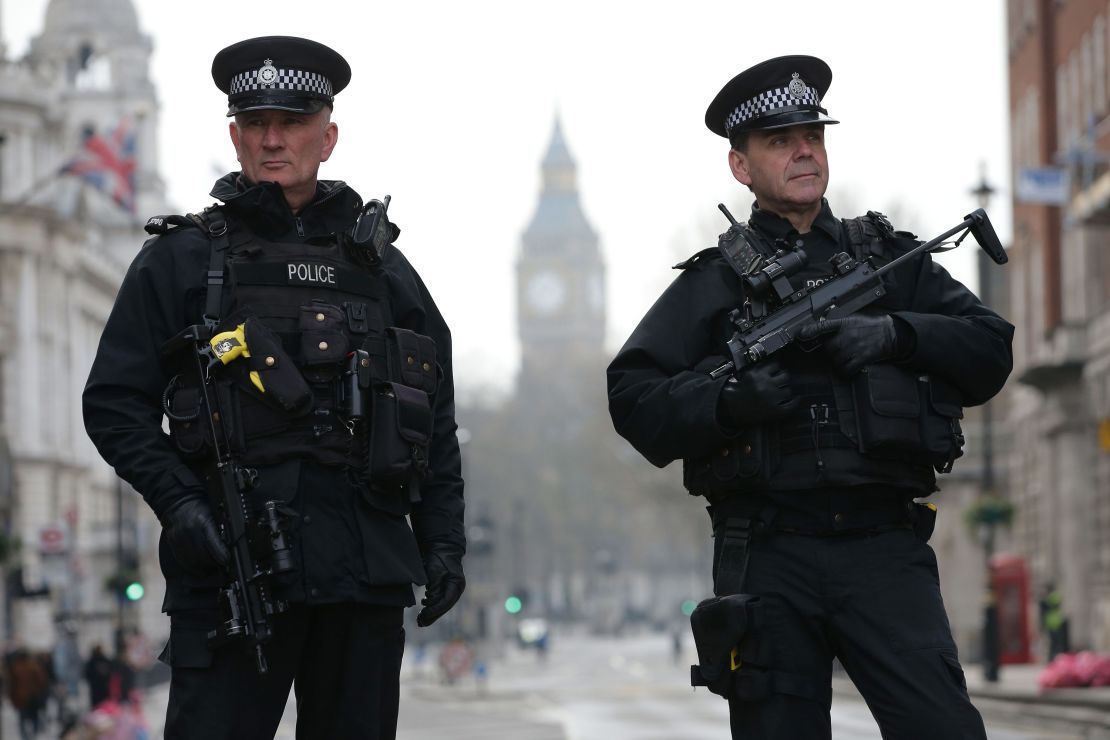In a horrifying attack in London on Wednesday, a lone assailant plowed a car into crowds of people gathered on Westminster Bridge before stabbing a police officer dead outside UK Parliament. The assault on the heart of Britain’s capital left four people dead.
On Thursday, police named the attacker as 52-year-old Khalid Masood. But there is still much we don’t know about the man who carried out the deadliest terror attack the UK has seen for more than a decade.
What we know

• Police named the attacker as 52-year-old Khalid Masood – known by a number of aliases.
• Masood, who was born in Kent as Adrian Russell Ajao, was most recently living in the West Midlands, according to police.
• He has never been convicted for any terrorism offenses, according to police.
• Known to police, Masood had a range of previous convictions for assaults, including grievous bodily harm, possession of offensive weapons and public order offenses.
• His first conviction was in November 1983 for criminal damage; his last conviction was in December 2003 for possession of a knife.
• Speaking before Masood was named, Prime Minister Theresa May said the attacker was known to authorities for links to “violent extremism.”
• He was investigated “some years ago” by security services, but was regarded as a “peripheral figure,” May said in the House of Commons.
• He was not part of the “current intelligence picture,” and authorities did not know he was about to mount an assault.
• The vehicle used in the terror attack was traced to a Birmingham car company.
• Britain’s most senior counter-terror police officer said investigations were ongoing in London, Birmingham and elsewhere on Friday.

• The attacker is believed to have acted alone, according to Mark Rowley, the lead officer in the UK for counter-terrorism policing.
• The working theory is that the attack was ISIS “inspired or copycat,” a UK official told CNN.
• ISIS-affiliated news agency Amaq has claimed responsibility for the attack, calling the attacker a ”soldier of Islamic State.”
What we don’t know

• Masood’s movements before the attack. Authorities have searched addresses in Birmingham and elsewhere, but the attacker’s whereabouts before Wednesday have not yet been confirmed.
•His motive. A UK official told CNN: “52 is interesting. Not the usual young pup profile” for an ideologically-driven attacker.
• How he was radicalized. Rowley said the main line of inquiry was whether he was radicalized through influences in a community, influences from overseas, or through online propaganda.
• Whether he acted alone. A number of arrests have been made – in Birmingham, the West Midlands, London and the north west of England – in connection with the attack, but it is not clear how those detained were associated with the attacker.
• The veracity of Amaq’s claim. Just because the ISIS-linked news agency asserted the attack was carried out by one of its “soldiers” does not necessarily mean the group had any direct connections to the attacker.




